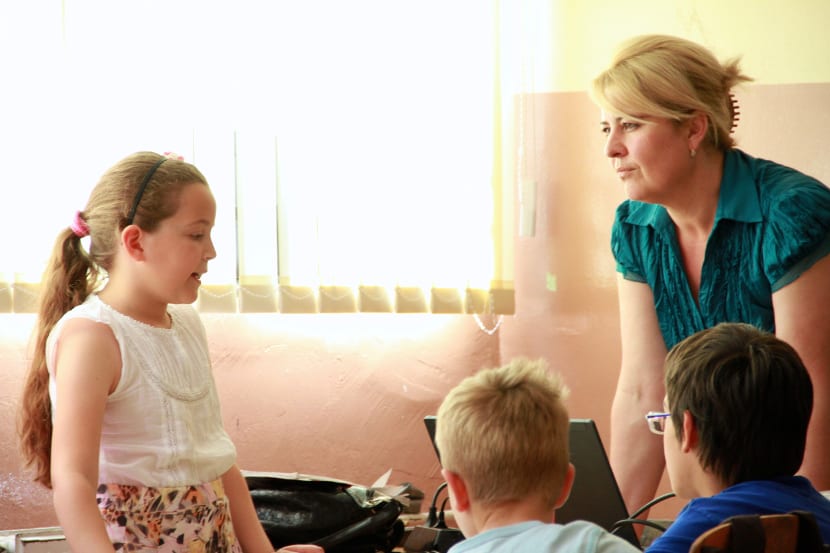
I don't want to be a killjoy or anything like that. But there is more than a month left for the schools and institutes to reopen their doors. And one of the most important things (at least for me) to have a fantastic start to the course is a good relationship between families and teachers. Last year we had everything: good communication, accusations, offenses and criticism from both parties.
It is clear that the accusations, offenses and criticisms should not have been given. Sometimes adults forget that they are such and that they have the ability to speak respectfully, without yelling and without hurting. But they do not always comply. In this way, a relationship between teachers and families is reached that is quite toxic, not recommended and that should be avoided at all costs.
For this reason, it has seemed correct to me (now that the course has not started yet) to talk about five essential keys for a good relationship and communication between families and teachers. Let's go for it!
Families and teachers have to be honest
But beware! Sincerity does not mean saying everything you think without any filter. You can be sincere without losing respect and taking into account empathy and understanding. In this way, sincerity is a key element for families and teachers to have a beneficial relationship for both. For that, I recommend use clear and precise language that everyone can understand and there are no misunderstandings.

Continuous support from both parties
I don't know if you've ever heard something like this: "But we teachers only teach mathematics." Or maybe this: "Those of you who have to educate the children are the teachers." Those phrases alone are not true. Teachers (although some may say so) not only teach math and also (should) reinforce values learned at home. However, they are not second parents to students. So that that they are the only ones who have to educate children is not true.
What do I mean by that? That both parties are very important in the education of the students / children. For this reason, families and teachers have to work together and not continually throw things at each other's heads. If teachers and parents are cooperative and willing to collaborate, I am sure that the children's experience in the classroom and at home will be much more positive and enriching than if they didn't.
Active listening is an essential element for good communication
Adequate communication and relationship between teachers and families is based on active listening. In meetings you don't just have to talk. It is also important to listen. For me it is essential that both parents and teachers have a positive attitude and closeness so that the conversations are as constructive as possible. On some occasions, there are families and teachers who just want to speak and be heard. For this reason, it is very necessary to respect every turn to speak in meetings.
Be clear that mistakes and mistakes serve to learn
Sometimes there are families who scold teachers for making a mistake about something. And there are also teachers who accuse parents of having made a mistake in a very bad way. The truth is that neither teachers nor families have the absolute truth. They can make mistakes, make mistakes, and fail. But the most important thing is to be clear that these mistakes do not have to be judged and that they serve to learn and do better next time.

The importance of knowing how to say things and expressing emotions
This is similar to "saying things anyway." There are teachers who speak very badly to parents. Yes it is true that they communicate but not in the best way. I give you an example so that you understand me better: a few months ago a mother told me that her son's teacher had told her in a meeting that his son was useless and lazy. I don't think there are useless children. And the teacher did not have to use those words under any circumstances.
The family can be told that the teachers find the child unmotivated, sad, and uninterested. Teachers can ask parents if something happened at home. But they should never insult a child (neither in front of the family nor behind). It is clear that there are teachers without vocation in all the centers. Be careful, there are also parents who speak in the worst way to teachers, blaming them for absolutely everything. And that is not fair.
Therefore, it is essential to foster a relationship of empathy and understanding between families and teachers. I also recommend learning to manage emotions (In fact, I see it essential for parents, educators, teachers and professors). It is sure to be very useful for future educational meetings and educational talks! And now I ask you: What are the main keys to maintaining an adequate relationship between families and teachers?